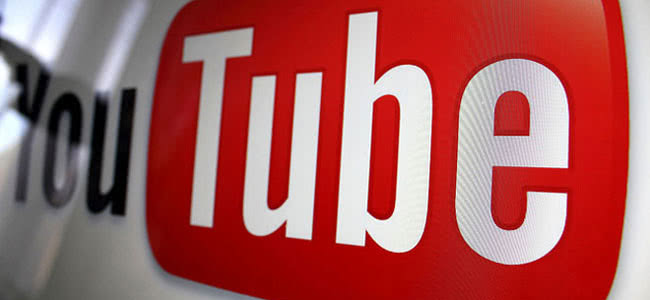Enjoy the likes of Radiohead, Arctic Monkeys, Vampire Weekend, Adele, and Franz Ferdinand on YouTube while you can.
They, along with other independent artists are set to disappear from YouTube “in a matter of days” as the Google-owned video website begins to block content from independent labels who have not signed up for its upcoming subscription-based streaming service.
The video streaming giant has already caused a major stir in the indie music sector over its entry into the streaming market after offering “highly unfavourable” and “non-negotiable” licensing terms to indie labels worldwide, who last month formed a coalition under WIN (World Independent Network) to vehemently oppose YouTube and refusing to sign onto their poor licensing terms.
Where YouTube were previously threatening to muscle out the indie labels by blocking content, The Financial Times (via The Guardian) now reports that they will begin removing labels that do not agree to their licensing terms to the new service, which is being tested internally this week before rolling out to the public later this year.
“We’re paying them fairly and consistently with the industry,” YouTube’s head of content and business operations, Robert Kyncl, says of the indie label negotiations. Though he would not go into specifics about royalty rates, he was “confident” that YouTube, which has paid more than $1 billion in licensing to the music industry through advertising, “is going to double” its numbers with its new streaming service – even if it means leaving the indie sector out in the cold. Radiohead’s Ed O’Brien fears that YouTube is “creating an internet just for the superstars and big businesses.”
“While we wish that we had 100% success rate, we understand that is not likely an achievable goal and therefore it is our responsibility to our users and the industry to launch the enhanced music experience,” said Robert Kyncl, YouTube’s head of content and business operations, claiming that the video service has finalised label deals representing 90% of the music industry; namely, lucrative licensing contracts with the ‘Big Three’ – Warner Music Group, Universal Music Group, and Sony Music Entertainment.
The list of labels refusing to ink to YouTube’s deals – and be affected by the forthcoming takedown – include XL Recordings, Domino, 4AD, Cooking Vinyl, while closer to home, Australian Independent Record Labels Association’s David Vodicka has also damned YouTube’s “decision to use its market power to unilaterally enforce inferior commercial terms on the independent sector.”
Other groups representing indie labels, such as WIN and Europe’s IMPALA, have already appealed to the European Commission to prevent YouTube’s indie takedown in a complaint about the company’s negotiation strategies.
[include_post id=”407065″]
It’s not just the industry whose feathers YouTube have ruffled with their content dispute, upset bands and artists have also openly criticised their manoeuvres, as The Guardian reports.
Radiohead guitarist Ed O’Brien, a co-chairman of the Featured Artists Coalition, fears that YouTube is “creating an internet just for the superstars and big businesses.” Meanwhile, Billy Bragg accused the site of “shooting itself in the foot” by attempting to strong-arm indies into inking low royalty rates for their Spotify competitor.
“They are in danger of launching a streaming service that lacks the innovative and cutting edge sounds that independent artists bring,” says the English Bard of Barking. “Would music fans be willing to pay for such an inferior product? I don’t think so.” “We have tried and will continue to try to help YouTube understand just how important independent music is…”
Bragg’s sentiments are echoed by WIN’s chief executive Alison Wenham, who tells The Guardian that YouTube “have suffered a simple but catastrophic error of judgement in misreading the market” and “setting itself up for failure.” Where YouTube claims they have 90% of the market on board, WIN says they represent a much larger proportion than 10%, based on figures from indie licensing agency Merlin who says the indie sector accounts for 32.6% market share.
“We have tried and will continue to try to help YouTube understand just how important independent music is to any streaming service and why it should be valued accordingly,” says Wenham.
“Music fans want a service that offers the complete range of music available. This is something that companies such as Spotify and Deezer do, both of whom have excellent relationships with the independent music sector.”
The introduction of YouTube’s streaming service – touted as a two-tier subscription based service in both free and monthly paid models – is looking to compete directly with Spotify, Deezer, Beats Music (et al.) by capitalising on its viewing base, averaging 1 billion a month, with music being one of the site’s biggest drawcards. Just think of the unprecedented 2 billion views recently reached by Psy’s ‘Gangnam Style’ and you can begin to imagine the accompanying dollar signs in YouTube’s eyes over their new music service.




































